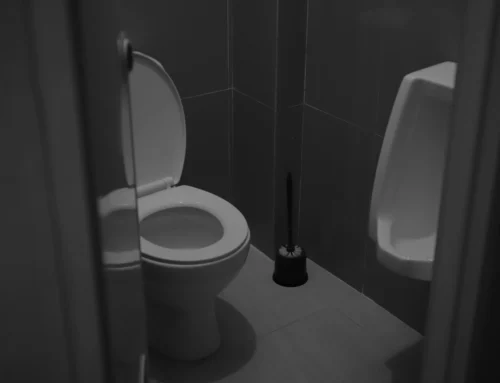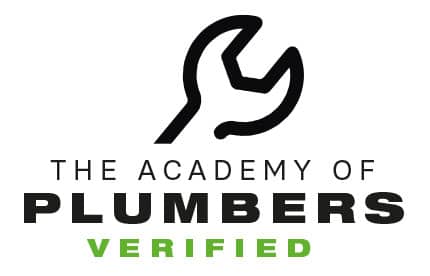Holland Park, with its mix of residential streets, green spaces, and growing infrastructure, is no stranger to drainage issues. One of the most common problems faced by homeowners and businesses alike is a Blocked Storm Water Drain. When these drains become clogged, the impact can range from minor inconvenience to serious property damage.
Understanding how to handle a Blocked Storm Water Drain in Holland Park is essential for protecting your home, ensuring safety, and maintaining the long-term health of your drainage system. In this guide, we’ll cover common causes, signs to look for, solutions, preventive measures, emergency response tips, seasonal considerations, and expert advice tailored specifically for Holland Park residents.
Why Storm Water Drains Are Important
Storm water drains are designed to direct rainwater away from properties, streets, and public spaces. They prevent flooding, erosion, and water damage during heavy rainfalls. In Holland Park, with its leafy suburbs and tree-lined streets, storm drains are particularly important due to the large amount of organic debris that can quickly accumulate.
When a Blocked Storm Water Drain occurs, water backs up, potentially leading to:
-
Flooded gardens and driveways
-
Damage to foundations and walls
-
Overflow onto neighboring properties
-
Increased pest activity in stagnant water
Common Causes of Blocked Storm Water Drains in Holland Park
Several factors contribute to drainage blockages in the area:
-
Leaves and Garden Debris
Holland Park’s trees shed leaves and twigs, which easily accumulate in gutters and drains. -
Sediment and Dirt
Over time, soil and sediment build up in drains, reducing water flow. -
Foreign Objects
Plastic, rubbish, or other waste accidentally washed into drains can cause immediate clogs. -
Tree Roots
The large, established trees in Holland Park often send roots into underground pipes, causing cracks and blockages. -
Heavy Rain Events
During storms, drains can become overwhelmed with water, especially if already partially blocked.
Signs of a Blocked Storm Water Drain
Recognizing the early signs of a Blocked Storm Water Drain helps prevent larger problems. Look out for:
-
Slow water drainage in outdoor areas
-
Unpleasant odors from grates or pipes
-
Overflowing gutters during rain
-
Pooling water in gardens or driveways
-
Gurgling sounds in storm water outlets
If you notice these symptoms around your Holland Park property, it’s time to act quickly.
DIY Solutions for a Blocked Storm Water Drain
For minor blockages, residents can attempt the following methods:
-
Manual Cleaning
Remove leaves, twigs, and visible debris from drain grates and gutters. -
Boiling Water Flush
Pouring boiling water into outdoor drains may help break down grease or minor blockages. -
Drain Rods
Drain rods or plumber’s snakes can reach deeper clogs in pipes. -
High-Pressure Hose
A pressure washer can dislodge small obstructions and flush them out.
Important: DIY methods should only be used for minor blockages. If water flow does not improve or if the drain is completely blocked, professional intervention is necessary.
Professional Help: Why It Matters
When a Blocked Storm Water Drain is more than a simple surface problem, calling an expert is essential. Professional plumbers and drainage specialists in Holland Park use tools such as:
-
CCTV Drain Cameras – to locate the exact cause of the blockage
-
Hydro-Jetting Machines – to clear out even the toughest debris and roots
-
Pipe Relining – to repair damaged pipes without digging
By hiring experts, you avoid recurring issues and ensure your storm water system remains functional for years to come.
Preventive Measures for Holland Park Residents
Prevention is always better than cure. To avoid a Blocked Storm Water Drain, consider these habits:
-
Clean gutters and drains at least twice a year
-
Install leaf guards on downpipes and drain grates
-
Dispose of garden waste properly instead of washing it into drains
-
Schedule annual inspections by a licensed plumber
-
Trim tree roots near underground pipes
These proactive steps can save you from costly repairs in the long run.
Environmental Impact of Blocked Storm Water Drains
Beyond property damage, a Blocked Storm Water Drain can harm the environment. Stagnant water increases mosquito breeding, while polluted runoff may enter waterways and harm local ecosystems. In a suburb like Holland Park, with its commitment to green living, proper drain care contributes to both personal and community wellbeing.
Local Insights: Holland Park Drainage Challenges
Holland Park experiences seasonal heavy rain, which can overwhelm storm drains already burdened with leaf litter. Older homes in the suburb may also have outdated pipe systems that are more vulnerable to cracks and root intrusion. This makes regular maintenance and quick action even more important for residents here.
For further guidance on protecting your home from storm water damage, visit the Queensland Government’s Flood and Stormwater Management Resources.
Emergency Response for Blocked Storm Water Drains
Sometimes, a Blocked Storm Water Drain can cause sudden flooding, especially during heavy rainfall in Holland Park. In such cases, immediate action is essential to protect property and reduce damage.
Steps to take during an emergency:
-
Ensure Safety First – Avoid standing water, which may hide hazards such as sharp objects or electrical risks.
-
Clear Accessible Debris – Remove leaves, twigs, and rubbish from drain grates to improve water flow.
-
Temporary Barriers – Sandbags or temporary barriers can divert water away from homes.
-
Call Professionals – Contact a licensed plumber or emergency drain service to address deeper blockages safely and efficiently.
Acting quickly minimizes property damage and ensures that streets and neighboring properties are not affected.
Seasonal Considerations for Holland Park Residents
Blocked storm drains are more common during certain times of the year:
-
Autumn/Winter: Falling leaves, wet weather, and increased organic debris can lead to blockages.
-
Spring: Sudden rainstorms combined with new vegetation growth may overwhelm partially blocked drains.
Holland Park residents should plan seasonal inspections and cleaning, particularly before the wet season, to prevent emergencies. Scheduling regular maintenance with professionals ensures that Blocked Storm Water Drains are less likely to cause flooding, property damage, or costly repairs.
Final Thoughts on Blocked Storm Water Drain in Holland Park
A Blocked Storm Water Drain in Holland Park may seem minor at first, but ignoring it can lead to serious damage, costly repairs, and environmental risks. From simple DIY fixes to professional drain clearing, the key is to act quickly.
By maintaining your gutters, keeping drains free from debris, following seasonal inspections, and relying on local experts when needed, you can ensure your property stays safe and resilient during stormy weather.
In a community like Holland Park, where nature and homes coexist closely, proper storm water management isn’t just about convenience—it’s about protecting your lifestyle, your investment, and your environment.
FAQs on Blocked Storm Water Drains in Holland Park
-
How often should storm water drains be cleaned in Holland Park?
At least twice a year, ideally before the wet season, to avoid blockages caused by leaf fall and heavy rain.
-
Can tree roots really block storm water drains?
Yes, tree roots are a leading cause of blockages in older drainage systems, particularly in leafy suburbs like Holland Park.
-
Is it safe to use chemical drain cleaners?
Chemical cleaners are not recommended for storm water drains as they may harm pipes, the environment, and local waterways.










